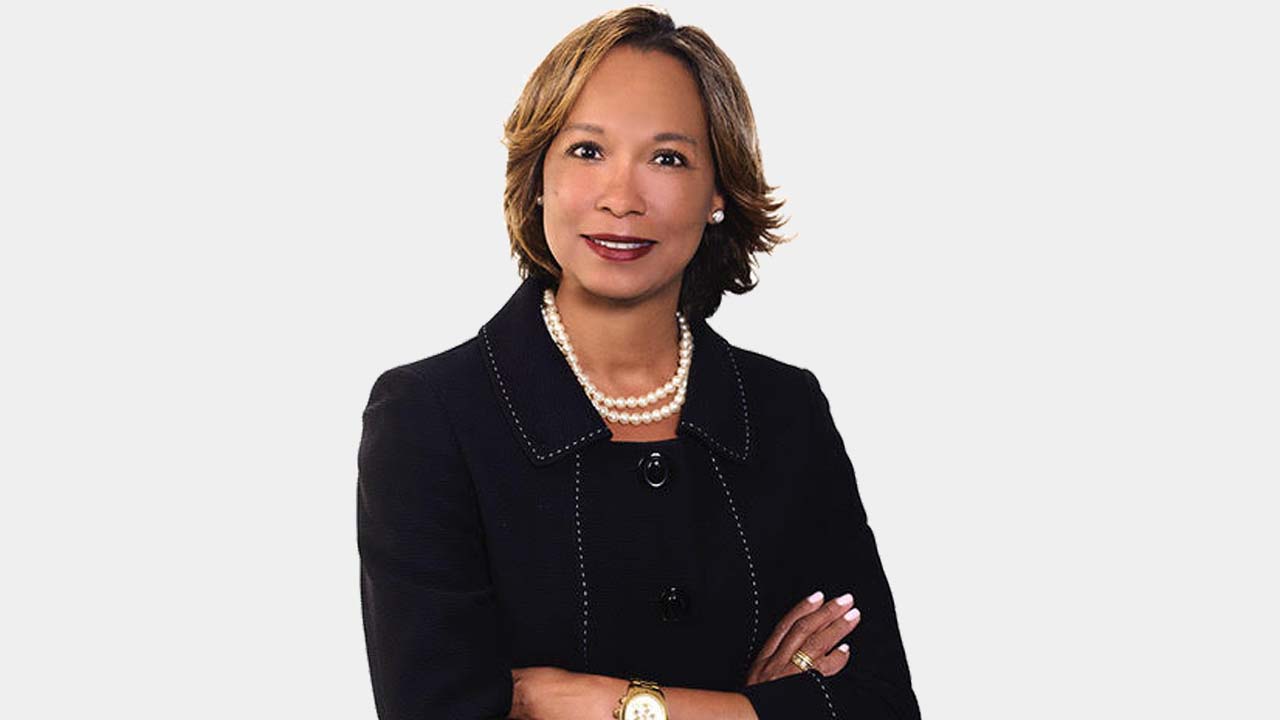Randy Gilbert, J.D.
Chief Happiness Officer
Florida’s Title Insurance Company
(954) 500-Title (8485)
Consumer Financial Protection Bureau (CFPB) On January 26, 2022, the CFPB launched an eight (8) page initiative to crack down against Junk Fees charged in real estate. The CFPB is a unit within the Federal Reserve charged with ensuring markets for consumer financial products and services are fair, transparent, and competitive.[1]
Spotting Junk Fees. Companies are increasingly charging inflated, back-ended fees, to households and families. In order to make another quick buck, additional fees are piled one-on-top-of-the-other to unsuspecting consumers. The hidden fee lays dormant, springing up when the consumer is so far along in the transaction that it becomes commercially impracticable for them to do anything about it other than pay. Consumers are forced to pay to play or risk being in default or otherwise suffer damages. Baiting consumers into a seemingly low price only to play the shell game by revealing and switching the original cost for one much higher, prompted us years ago to combat an industrywide practice by federally trademarking our own “No Junk Fee Guarantee!®”
It’s the bottom line that matters. It kills me when a realtor tells me how insultingly cheaper someone else is, to the point of impossibility for that title company to survive. Our response is simple, “Ask your title company to give you what’s called a closing disclosure (CD), a HUD, or Settlement Statement, and we will show you all of their padded and unauthorized fees.” Realtors are shocked when they see that title companies are either up charging for reimbursable expenses, or charging multiple line items on top of their quoted base price. Alone the fees look small, but cumulatively those fees add up big time! It’s like going to a fancy dinner and thinking well I ordered a $15.00 cocktail, and a salad, and an appetizer, and an entrée, and desert but when you get to the end of the bill those line items add up to over $100 per person at the dinner table. It’s the bottom line that matters.
Most of the time we’ve found that title companies who hide their fees actually windup charging more in the end than what we charge. This article is a call to action and for more transparency in the title insurance industry, which in turn will create a more fair marketplace by enabling consumers to accurately compare apples-to-apples.
Junk Fee defined. Junk fees obscure and distort the free market systems by concealing the true cost of a product and undermine a competitive marketplace. Junk Fees include:
- Fees for things people believed were covered by the baseline price of a product or service
- Unexpected fees for a product or service
- Fees that seemed too high for the purported service, or
- Fees where it was unclear why they were charged
Examples of Junk Fees. Our title company charges a flat upfront and fully disclosed “Settlement Fee” (also known as fees for “Closing Services” defined more fully below) regardless of the price of the property. In large part, the “Settlement Fee” is where title companies play gamesmanship and fudge numbers. When I see an unusually low “Settlement Fee” it almost a virtual certainty that there are going to be additional hidden fees. The Settlement Fee may appear artificially low, and this is what many title companies advertise, but their published Settlement Fee shadows all of the other unmentioned line item and ticky-tacky fees they add at closing. As outlined below, virtually all services provided by title companies really should be included in their “Settlement Fee,” without a bunch of additionally added line items for more fees. Many title companies advertise low attractive rates, but often pad their pockets, and sweeten their coffers, by adding hidden undisclosed extra fees at the closing table like:
(1) Wire Fees. I regularly see $75.00 wire fees being charged. According to the Commission, with very limited exception, this fee should be included in the settlement fee and not be charged as an extra;[2]
(2) Postage, Mailing, and Handling Fees.[3] I regularly see $100.00 fees being charged for DHL or FedEx. According to the Commission, with very limited exception, this fee should be included in the settlement fee and not be charged as an extra;
(3) Storage Fees. [4] Title companies are already obligated to store their records.[5]
(4) Warehousing Fee; [6]
(5) Document Retention Fee; [7]
(6) Electronic Storage Fee; [8]
(7) Archive Fee; [9]
(8) Scanning Fee; [10]
(9) Printing or Copy Fee; [11]
(10) Thumb Drive of Cd Fees; [12]
(12) Origination or Loan Service Fee – we are a title company not a lender;
(13) Title Exam Fee or Title Review Fee in addition to a Settlement Fee;
(14) Recording Service Fee;[15]
(15) Escrow Service Fee; [16]
(16) Outside Notary Fees (this does not include Remote Online Notary Services Fla. Stat. §117.275);[17]
(17) Convenience Fees;
(18) Telecommunication Fees (i.e. faxes, long distance); [18]
(19) Up charges to title commitments, condo or HOA estoppels, and municipal lien searches; [19]
(20) Title Update or Recertification Fee – This is a normal part of the process, the public records should be reviewed again after the parties sign at the closing and prior to issuing the title policy, this is called “insuring the gap”;[20]
(21) Obtaining Mortgage Satisfactions; [21]
(22) Waiver of excess/overages being held in escrow if $25.00 or less.[22]
(23) When you buy a title insurance policy and pay the “Title Insurance Premium,” that price already includes “Primary Title Services” (Explained in more detail below). That means title agencies are not allowed to charge extra for “Primary Title Services” such as:
- Examining the Public Records,
- Determining insurability;
- Evaluating a title search or UCC filing;
- Determining and clearing underwriting objections and requirements to eliminate risk;
- Preparing and issuing a title commitment; nor
- Preparation of a title policy jacket, or binder. See, Stat. §627.7711(1)(b), (2); See also, My Florida CFO’S Frequently Asked Questions, Title Closings, Question #1.
So What Can a Title Insurance Company Charge? Essentially, there are only three (3) types of fees that title insurance companies may charge. Title insurance companies may charge for: (A) the “Title Search,” (B) “Closing Services” often called a Settlement Fee; and (C) a “Title Insurance Premium.”
- Title Search means the compiling of title information from official or public records. See, Stat. §627.7711(1)(b), (4). The title search provides a summary listing of all of the past recorded documents affecting title to the land being purchased. Our fee for this is the cost charged to us by our underwriter which is $135.00. Many title companies inflate this amount to $200.00, $250.00, or $300.00 because consumers have no idea what our true cost is.
- Closing Services (also known as a “Settlement Fee” in the industry) are essentially services for actually doing the closing and include:
- Services performed in the agency’s capacity including, but not limited to,
- Preparing documents necessary to close the transaction,
- Conducting the closing, and
- Handling the disbursing of funds. See, Stat. §627.7711(1)(a)
- Title Insurance Premium is the price set in the charts below by the State of Florida (technically by Florida’s Financial Services Commission) see, Stat. §624.05(2), for the title insurance policy See, Fla. Stat. §627.7711(2).
Most violations on what title companies can charge occur in what should already be included in this bucket (i.e. what services the Title Insurance Premium already covers). The reason is because it’s counter-intuitive to think, but the “title insurance premium” covers much more than just the price of the insurance policy. It bundles in a lot of services that the title company is already required to provide, and which they are not allowed to separately charge. The title insurance premium includes “primary title services” (defined above) see, Fla. Stat. §627.7711(1)(b), (2); and, My Florida CFO’S Frequently Asked Questions, which knocks out a lot of the additional charges that a title company can separately charge.
It is for this reason the safer practice is for title companies to simply put the fees that they want to charge inside of their settlement fee (i.e. the Closing Service fee which title companies are allowed to charge), instead of breaking out multiple line items for additional unauthorized fees.
Our website provides a Title Insurance Calculator to determine the price of a title insurance policy in Florida. There really is no magic to it because Florida Title Insurance Companies are required to charge the promulgated rate.[23] The price of the insurance policy is based upon a promulgated rate and can be easily calculated by simply using the charts below. See, Fla. Admin Code. 69O-186.003.
Original Owner’s Policy
Premium Shall Be:
| Per Thousand | Minimum Insurer Retention | |
| From $0 to $100,000 of liability written | $5.75 | 30% |
| From $100,000 to $1 million, add | $5.00 | 30% |
| Over $1 million to and up to $5 million, add | $2.50 | 35% |
| Over $5 million and up to $10 million, add | $2.25 | 40% |
| Over $10 million, add | $2.00 | 40% |
Original Mortgage/Lender’s Policy
Premium Shall Be:[24]
| Per Thousand | Minimum Insurer Retention | |
| From $0 to $100,000 of liability written | $5.75 | 30% |
| From $100,000 to $1 million, add | $5.00 | 30% |
| Over $1 million and up to $5 million, add | $2.50 | 35% |
| Over $5 million and up to $10 million, add | $2.25 | 40% |
| Over $10 million, add | $2.00 | 40% |
Reissue Rates
(i.e. When Seller has an insurance policy less than 3 years old)
Reissue Premium for Owner’s and Mortgage/Lender’s Policy shall be:
| Per Thousand | |
| Up to $100,000 of liability written | $3.30 |
| Over $100,000 and up to $1 million, add | $3.00 |
| Over $1 million and up to $10 million, add | $2.00 |
| Over $10 million, add | $1.50 |
WARNING: If you sign an agreement with a title company stipulating to high-priced, fee-laden escrow and miscellaneous charges, then you may have agreed to the title company’s “additional” fees, and may not be able to renegotiate. However, as cited in the footnotes some of those waivers and agreements that title companies ask consumers to sign may be invalid and unenforceable by the title company.[25]
DISCLAIMER: Topics discussed are general concepts, not intended to constitute legal advice, accuracy, nor completeness, and may not be relied upon as such; consult an attorney or accountant. The author Randy Gilbert, J.D. is neither an attorney nor an accountant. FTIC is a national award winning title insurance company known for its white glove customer service and “No Junk Fee Guarantee.” ®
[1] Accord., Rohit Chopra, CFPB Director
[2] See, My Florida CFO’S Frequently Asked Questions, Title Closings, Question #3. “Can I charge a separate fee for postage, mailing, or overnight shipping? The Florida Statutes defines “closing services” [i.e. the Settlement Fee] as including preparing the documents and conducting the closing. Therefore, any charges related to these functions should be included in the agency’s closing services fee. The definition of “primary title services” includes performing the steps necessary to issue the title insurance policy. The insurer’s liability for the gap period does not end until the proper documents are recorded in the county where the property is located. Therefore, the expense incurred by the agency to get these documents should be included in that agency’s share of the title insurance premium. In many closings, the lender will require certain debts of the buyer to be satisfied as part of the loan process. In order for the title agency to disburse these funds from the escrow account within the payoff deadline, it may be necessary to send the payments to each creditor using a wire transfer, overnight or express mail services. While these payoffs are being disbursed from the escrow account, the primary purpose of the payments is to satisfy a lender requirement not a title insurance requirement. The department would not object to separate charges being made to the buyer for this service, as long as the agency did not add an amount to the charges from the provider of these services. The department would expect these charges to be recorded in the sections identified by the CFPB for the proper completion of their Closing Disclosure form.”
[3] See, My Florida CFO’S Frequently Asked Questions, Title Agency, Question #6. “Examples of fees that should not be listed as separate line items on the form include, but are not limited to: Postage and handling, Notary services, Copies, Digital documents, Document preparation fees, Document storage or warehousing fees, Electronic conversion of documents to CD or DVD formats. Agencies that charge additional fees as separate line items may be found to be engaging in deceptive practices against Florida consumers in violation of the Florida Statutes.”
[4] See, Fn. #3.
[5] “The title insurer or its agent or agency must maintain a record of the actual premium charged for issuance of the policy and any endorsements in its files for a period of not less than 7 years. The title insurer, agent, or agency must produce the record at its office upon demand of the office.” Fla. Stat. 627.7845(3)
“The licensee shall keep and make available to the department or office books, accounts, and records as will enable the department or office to determine whether such licensee is complying with the provisions of this code. Every licensee shall preserve books, accounts, and records pertaining to a premium payment for at least 3 years after payment; provided, however, the preservation of records by computer or photographic reproductions or records in photographic form shall constitute compliance with this requirement. All other records shall be maintained in accordance with s. 626.748. The 3-year requirement shall not apply to insurance binders when no policy is ultimately issued and no premium is collected.” Fla. Stat. 626.561(2), See also, My Florida CFO’S Frequently Asked Questions, Agency Licensing and Compliance, Question #20.
“Every agent transacting any insurance policy must maintain in his or her office, or have readily accessible by electronic or photographic means, for a period of at least 5 years after policy expiration, such records of policies transacted by him or her as to enable the policyholders and department to obtain all necessary information, including daily reports, applications, change endorsements, or documents signed or initialed by the insured concerning such policies.” Fla. Stat. §626.748, See also, My Florida CFO’S Frequently Asked Questions, Agency Licensing and Compliance, Question #20.
[6] See, Fn. #3.
[7] See, Fn. #3.
[8] See, Fn. #3.
[9] See, Fn. #3.
[10] See, Fn. #3.
[11] See, Fn. #3.
[12] See, Fn. #3.
[13] See, Fn. #3.
[14] “The fee of a notary public may not exceed $10 for any one notarial act under this part, except as provided in s. 117.045 [regarding marriages] or s. 117.275 [regarding remote online notaries].” Fla. Stat. §117.05(2)(a).? “An online notary public or the employer of such online notary public may charge a fee, not to exceed $25, for performing an online notarial act under this part. Fees for services other than notarial acts, including the services of a RON service provider, are not governed by this section. A RON service provider’s services are also not considered closing services, as defined in s. 627.7711, and a fee for those services may be separately charged.” Fla. Stat. §117.275. “The Governor may suspend a notary public for …. (i) Charging fees in excess of fees authorized….” Fla. Stat §117.01(4)(i).
[15] This service would need to be performed as part of a closing. The fee would be redundant and should be included as part of the “Closing Services.” See, Fla. Stat. §627.7711(1)(a).
[16] See, Fn. #15.
[17] “An outside notary can assist a title agency with performing a closing However, this would be an expense of the title agency and not an expense of the closing file. The cost for this service should be calculated in the closing services fee recorded on line 1100 of the settlement statement form. The notary service is conducting the closing which is clearly defined in Florida Statute s. 627.7711(1)(a) as being part of the closing services. By hiring an outside vendor to assist your title agency, you are assuming the responsibility for that vendor as if they were your employee. The title agency will be held responsible for the closing transaction performed by the outside vendor.” My Florida CFO’S Frequently Asked Questions, Title Agency, Question #7.
[18] See, Fn. #15.
[19] See, what is included in “primary title services” for which extra fees may not be separately charged. See, Fla. Stat. §627.7711(1)(b), (2)
[20] See, Fn. #19
[21] See, Fn. #19.
[22] According to the Department of Financial Services, Frequently Asked Questions, Escrow funds are received by an agency in a fiduciary capacity. All funds must be properly accounted and paid to appropriate party. Failing to disburse any amount from the escrow fund is a violation. Florida Statutes §626.8473(4) states, “Funds required to be maintained in escrow trust accounts pursuant to this section shall not be subject to any debts of the title insurance agent and shall be used only in accordance with the terms of the individual, escrow, settlement, or closing instructions under which the funds were accepted.” Furthermore, according to the Department,
“The title insurance agent or agency is not the owner of these funds. A title insurance agent, title insurance agency or a title insurer is entitled to receive only the amounts listed on the settlement statement form for the services or products that entity provided. Anyone that retains any portion of a fee that the consumer overpaid must refund that overage immediately. The Department of Financial Services does not recognize any waiver of the provisions of the Florida Statutes that relate to funds held in escrow and/or disbursed from escrow by a licensee. A title insurance agent or agency must immediately return any amounts that are due to the consumer, regardless of the amount.” My Florida CFO’S Frequently Asked Questions, Title Escrow Accounts, Question #6, #7.
[23] Title Insurance companies are allowed to then offer the purchaser of the title insurance a rebate. “To assure proper credit to the appropriate party, any rebate of the agent’s share of the premium should be noted on the Closing Disclosure form on any line not assigned to another topic. It is important to note Florida Statutes s. 627.780 requires licensees to “quote, charge, accept, collect or receive” only the promulgated rate (premium), which should be recorded on the Closing Disclosure form in the proper area as defined by the Consumer Financial Protection Bureau (CFPB).” See, My Florida CFO’S Frequently Asked Questions, Title Closings, Question #5.
[24] “Simultaneous Issue Rates. … When an owner’s and a mortgagee’s policy or policies covering identical land are to be issued simultaneously the risk premiums applicable for the owner’s policy shall be the regular owner’s rate as provided for herein. The rate for the mortgage policy or policies so simultaneously issued will be a minimum $25.00 for an amount of insurance not in excess of the owner’s policy. The risk premium on the amount of the mortgage policy or policies in excess of the owner’s policy shall be figured at the regular original title insurance rates for mortgage policies.” Fla. Admin Code. 69O-186.003(5).
[25] See, Fn. #22.













